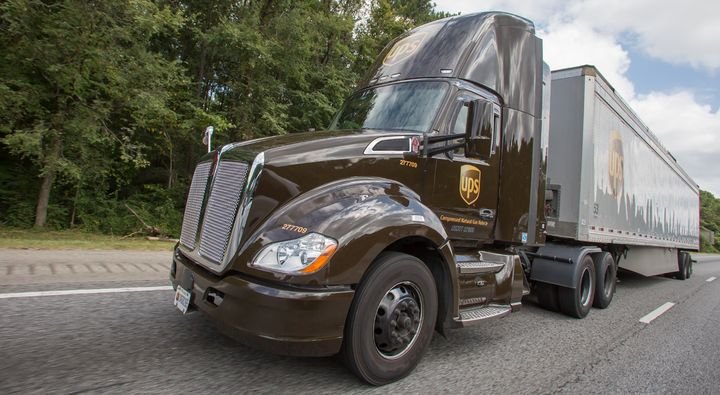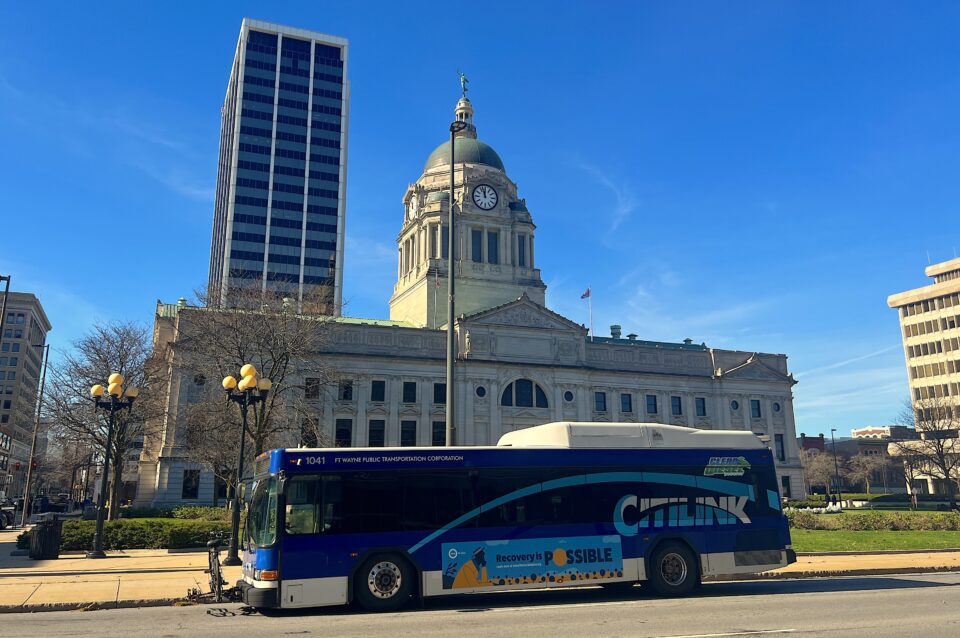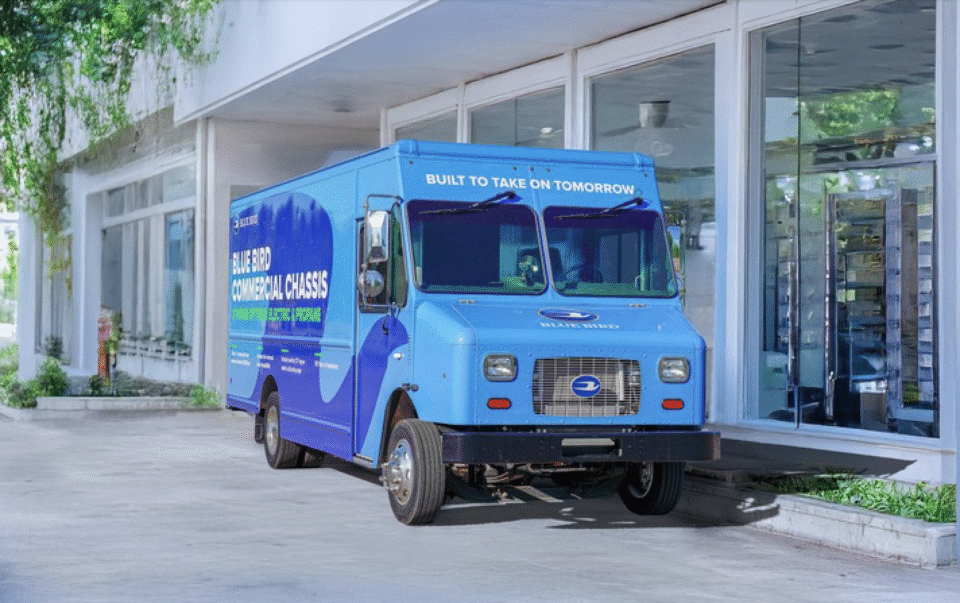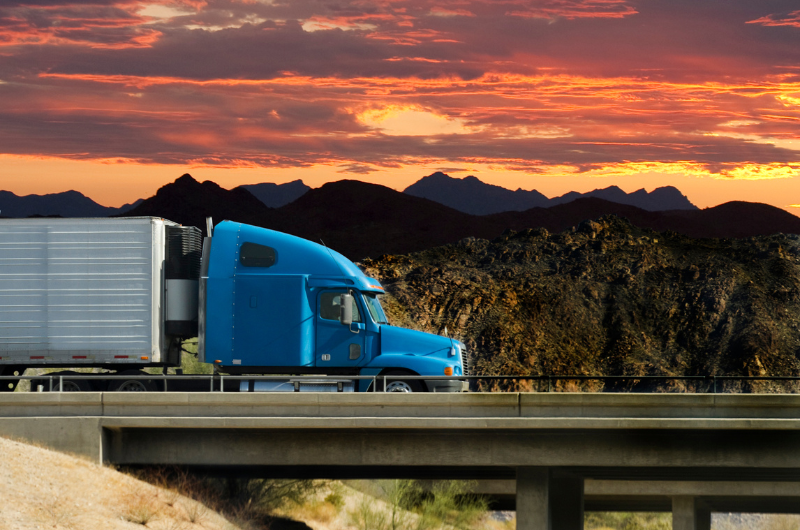Beyond a Buzzword: Fleets Lead with Sustainability

Like any broad concept, “sustainability” has the potential to become just another industry buzzword tacked onto a mission statement. Yet, many large and small trucking fleets are embracing the concept as a pillar of their business, recognizing the power sustainability practices have in building a customer base, reducing environmental impact and improving the bottom line.
Sustainability efforts, from alternative-fuel vehicles and idle-reduction technologies, to green buildings and route optimization, can reach far and wide to make changes across the supply chain. Chances are, most fleets are making efforts in sustainability without realizing it.
Yet, less than half of the 474 small- and mid-sized trucking companies (including owner-operators) surveyed by Convoy in 2021 said they felt a pressure to reduce carbon emissions. Of the about 36% who do feel pressure to reduce emissions, the fleets indicated that pressure came from government regulations (22%) and general awareness of the impact of emissions (21%).
For those smaller fleets that don’t see the benefit of investing in sustainability efforts, or the larger fleets that haven’t taken the plunge to make it a purposeful mission, hear from a handful of fleets who are leading from the front on sustainability and using it as a touchstone to success.
Environmental Responsibility
For many fleets, executives feel a responsibility to put sustainability at the core of their trucking operations, just like they have with safety.
Take one of HDT’s 2021 Top Green Fleets, UPS, for example. With a global footprint and customers expecting their packages in more than 220 countries and territories, UPS has acknowledged its role in climate change, and recognized how climate change, air quality and other socioeconomic challenges intersect.
So, UPS has placed a focused on the creation of more environmentally sustainable solutions to work toward carbon neutrality by 2050 through introducing innovative delivery methods for crowded cities, and investing in next-generation vehicles and route optimization technologies.
“Logistics is a carbon-intensive industry, and our focus is on making credible, purposeful changes to adapt and to achieve our goals at every point along the chain,” Lauren Spangler, UPS’ global sustainability communications lead, said in an email. “That’s why we take a holistic approach to sustainability and are investing in the cutting-edge solutions to reduce our carbon footprint.”’
UPS’ fleet includes more than 13,300 alternative-fuel and advanced technology vehicles. The company has pre-ordered 125 Tesla Semi Class 8 electric trucks and up to 10,000 all-electric delivery vans manufactured by Arrival.
 By 2025, its goal is to run 40% of its ground operations on alternative fuels, and by 2035 it plans to run its facilities completely on renewable electricity and reduce carbon dioxide emissions per global small package by 50% compared to 2020 levels.
By 2025, its goal is to run 40% of its ground operations on alternative fuels, and by 2035 it plans to run its facilities completely on renewable electricity and reduce carbon dioxide emissions per global small package by 50% compared to 2020 levels.
Chemical and plastics hauler Quantix, formerly branded an A&R Logistics family of companies, is the biggest player in the industry on the plastics side, and in the top five on the chemical side. They aim to lead the industry in environmental stewardship, says Quantix President and CEO Chris Ball.
“We’re guilty by association, so to speak, because we haul stuff that’s just pollutants,” says Troy Basso, Quantix vice president of maintenance. “We’ve taken the stance that we’re not going to be ‘those guys.’ We’re going to set the bar for our competitors and friends in the industry to reach to come up with us, so that we change the way the chemical and the plastics industry works. We want Quantix to be the company that is concerned, and puts their money where their mouth is.”
The heads of every department at Quantix, led by CEO Ball, meets every couple months to discuss and come up with creative sustainability initiatives that can cost anywhere from pennies to hundreds of thousands of dollars. This sustainability committee is meant to loop in every division in the company, not just the trucking side.
“We want the whole organization to know what we’re doing, and then look for ways to be creative and smart,” Ball says.
The committee discusses one of the five or six big sustainability initiatives that Quantix is implementing at any given time.
“We’re not doing this to look nice,” Basso says. “This is something that we believe in and that we want to do.”
By 2025, Quantix will include aerodynamic deflectors on 20% of its dry bulk fleet (see “Engineering Aerodynamics”), and by 2030, Quantix aims to run 25% of its last-mile and drayage fleets on alternative fuels.
Proof in the Pudding
For the past 15 or so years, Chattanooga, Tennessee-based truckload carrier U.S. Xpress has been carefully spec’ing tractors to minimize its pollutants, particularly making choices in exhaust systems and engines that have demonstrated reduced greenhouse gas and particulate pollution.
“As a result of a focus on tractor component specifications, U.S. Xpress has realized improvements in key measures of the environmental impact of our fleet between 2017 and 2020,” Shaun Sadler, senior vice president of equipment and maintenance for U.S. Xpress, wrote in an email. “Carbon dioxide emissions per ton-mile decreased 5%, nitrous oxide emissions per ton-mile decreased 15%, particulate matter emissions per ton-mile decreased 25%, and fuel economy has increased 6%.”
Results of this effort are demonstrated by a long-lasting partnership and ongoing commitment to the U.S. Environmental Protection Agency’s SmartWay program.
 In October 2021, U.S. Xpress received the SmartWay Excellence Award, one of 62 truck and multimodal carriers to receive the honor out of SmartWay’s nearly 4,000 partners. This is the third Excellence Award for U.S. Xpress, recognizing industry-leading efficiency and contributions to clean air.
In October 2021, U.S. Xpress received the SmartWay Excellence Award, one of 62 truck and multimodal carriers to receive the honor out of SmartWay’s nearly 4,000 partners. This is the third Excellence Award for U.S. Xpress, recognizing industry-leading efficiency and contributions to clean air.
U.S. Xpress is actively installing new auxiliary power units fleet-wide, with around 1,500 units already installed and plans to have another 1,000 installed by year-end.
Another effort to reduce the amount of diesel burned, greenhouse gases and particulates is the use of an aerodynamic package on its trailers that delivers a 7.4% fuel savings at 65 mph.
“We’re also partnering with tractor manufacturers and fluid suppliers to extend miles between oil change intervals that has resulted in a 20% increase in miles between oil changes,” Sadler says. Sadler was named one of HDT’s Truck Fleet Innovators in 2021.
Sustainability as a Stipulation
Fleets aren’t shying away from sharing their current efforts and future goals widely with their customers and investors. They’re crafting extensive sustainability reports (see below, “Are Sustainability Reports the Next Big Thing?”) and dedicating entire sections on company websites to marketing their companies as environmentally responsible.
Beyond internal goals, why would fleets invest so much time, money and effort into both walking the walk and talking the talk? Because customers eat it up. Just like trucking companies, many of their customers are in the midst of their own sustainability journeys to minimize their impact on the environment and optimize their supply chain. They are looking to their transportation partners to support, and contribute to, their goals.
When Quantix announced it purchased two electric trucks from Petebilt, it’s customers were jumping to get “in” on the project.
 “Our customers are some of the major chemical producers, like Exxon, Dow, Chevron, Shell — these major companies also have their own robust strategies,” Quantix CEO Ball says. “We’re doing this hand-in-hand, trying to do a better job.”
“Our customers are some of the major chemical producers, like Exxon, Dow, Chevron, Shell — these major companies also have their own robust strategies,” Quantix CEO Ball says. “We’re doing this hand-in-hand, trying to do a better job.”
Dow, for example, has a zero-carbon target by 2050, and Quantix is one of its top providers in North America. On any given day, Quantix is running 50 to 80 trucks hauling Dow freight.
“The biggest challenge they have to that goal outside of manufacturing is transportation,” Ball explains. “They move a lot of product by sea, rail and truck. They’re challenging us and their supply chain community to help them do that. And they’re willing to pay for it. They’re willing to put the money into it because it’s part of their company’s strategic goals.”
He adds: “We’re obviously going to be the net beneficiary to this, because if we do this right, Dow will give us more business. At the same time we’re going to be doing right by the environment.”
Quantix aims to position itself as a leader in environmental stewardship in the plastics and chemical hauling industry.
UPS also recognizes that its customers and other key stakeholders, now more than ever, look at a company’s behavior when choosing who they do business with. At UPS, the company’s sustainability goals are driven by their stakeholders.
“First are our customers and communities,” UPS’ Spangler says. “They care about sustainability, and we’re committed to offering them ways to meet their needs while minimizing carbon emissions. Certain choices, such as having multiple packages shipped to UPS Access Point locations, allows them greater choice and convenience while helping to minimize the impact of our overall network. Second are governments, who are responding to their own constituencies and implementing new environmental regulations, mandates, and incentives. Finally, UPS is highly engaged with our investors, including discussion about environmental, social and governance, and our plans to be carbon neutral by 2050.”
 UPS CEO Carol B. Tomé noted during the fourth quarter 2021 earnings call that “ESG isn’t just good for the planet, it’s good for business.”
UPS CEO Carol B. Tomé noted during the fourth quarter 2021 earnings call that “ESG isn’t just good for the planet, it’s good for business.”
Loffredo Fresh Foods, a 100-truck fifth-generation family company based in Iowa, has noticed that recent bids for its largest national accounts have questions about the company’s sustainability efforts.
Luckily, the food distributor is doing its part. Loffredo recycles 5 million pounds of produce scraps each year that are being diverted from landfills and donated to support local farms, which use them for compost or animal feed.
The fleet is also working with Ames, Iowa-based Renewable Energy Group to increase its use of biodeisel from a conservative B5 5% biodiesel blend, and none in the winter, to a B20 20% biodiesel blend nine months out of the year, dropping to B5 in the winter.
Beyond the Buzz
Whether big or small, fleets of all sizes can take strides to improve sustainability in their fleet. Hear the buzz, and embrace it to better serve your business.
“We don’t consider sustainability a buzzword, at all,” Quantix’s Basso says. “Everyone on our sustainability committee is committed. We’re not doing this to specifically get more business. Will we get more business? Well, we’d like to think we would be by being a responsibility company. But, we’re doing this because we’re committed to it. It’s not a buzzword here.”
View the original article.




